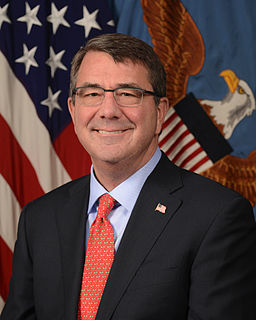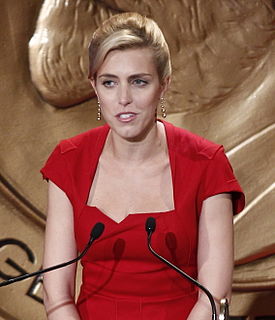A Quote by Ashton Carter
We have for decades now, and I've dealt with the Russians for 35 years, we have from time to time been able to, even though we have different interests, to align them. That alignment has become more and more difficult under Putin. You see that in Ukraine, you see it in the Middle East. To an extent where he actually defines Russian success as thwarting the United States.
Related Quotes
In light of Trump's irresponsible behavior, even Putin may decide that it was time to recalculate Russian interests. This could happen quite quickly if Trump goes ahead and wrecks one of the few potentially stabilizing developments in the Middle East during the last several years. Similarly, if Israel joins NATO, this might be more than Putin is willing to swallow.
Putin imagined it would be different. So, like many Russian leaders before him, he imagined that Ukraine was basically Russia, but they speak with a funny accent. Actually, it's not Russia; it has a different identity. It has a very different language. Russians don't automatically understand Ukrainian. And, in particular, the way Ukraine has developed over the last two decades is different from the way Russia has developed.
The attitude of the West and of Russia towards a crisis like Ukraine is diametrically different. The West is trying to establish the legality of any established border. For Russia, Ukraine is part of the Russian patrimony. A Russian state was created around Kiev about 1,200 years ago. Ukraine itself has been part of Russia for 500 years, and I would say most Russians consider it part of Russian patrimony. The ideal solution would be to have a Ukraine like Finland or Austria that can be a bridge between these two rather than an outpost.
I don't believe in the theory that the United States is reducing its presence in the Middle East. Quite the contrary, in the Gulf, we see an increase in American military presence, as well as an increase in American investments. The argument is more accurate when one says America is focusing more attention to the Far East. But I don't believe it comes at the expense of the Middle East.
Putin described Kiev is the mother of Russian cities. These - the Russian people view Ukraine as an extension of Russia. And so there is a sense that Putin really will do whatever it takes, even in the face of overwhelming, diplomatic, and economic pressure to defend what he sees as Russia's vital interest. And I think when we're trying to understand what's going on in Ukraine we have to keep that in mind. This isn't a simple case of Putin agitating for a fight.
The Russians will always find a pretext for their aggression. It was Putin who said in 2005 that the biggest geopolitical disaster of the last century was the collapse of the Soviet Union. Putin wants to bring Ukraine back into the Russian sphere of influence. That is why he tried everything in order to stop the EU-Ukraine Association Agreement.
I believe that the Iraqis have an opportunity now, without Saddam Hussein there, to build the first multiconfessional Arab democracy in the Middle East. And that will make for a different kind of Middle East. And these things take time. History has a long arc, not a short one. And there are going to be ups and downs, and it is going to take patience by the United States and by Iraq's neighbors to help the Iraqis to do that. But if they succeed, it'll transform the Middle East, and that's worth doing.
Iran did not talk to the United States for 35 years. And now we are talking. And I believe these talks are useful. But they haven't produced the intended results. We have not seen an end to the hostility that has been exhibited in the United States against Iran. And I believe it is important that we see some of that.
Putin doesn't need Donbass (east Ukraine). He wants to determine the fate of the world at talks with a U.S. President, putin is dreaming of getting a deal with the United States about a new-old order for the world, when the world is split on zone of influence. When you cannot interfere in someone else's zone. Not even to mention internal politics.
It was the last time she’d see the river from that window. The last time of anything has the poignancy of death itself. This that I see now, she thought, to see no more this way. Oh, the last time how clearly you see everything; as though a magnifying light had been turned on it. And you grieve because you hadn’t held it tighter when you had it every day.
For decades, conventional wisdom in the United States held that it was only a matter of time before China would become more liberal, first economically and then politically. We could not have been more wrong - a miscalculation that stands as the greatest failure of U.S. foreign policy since the 1930s.
we are dealing with a return to what might be a far more normal relationship between the West and Russia. Russia is what it is that we see. It's not dressed up in its birthday costume. It is what it is. It regards its national interests as important enough to fight for. And the difference on the whole Ukraine situation is that the Russians are prepared to fight for their position on Ukraine, and the West is not.

































